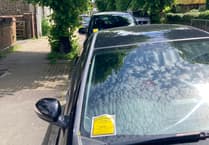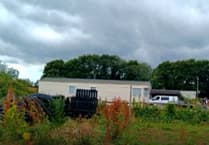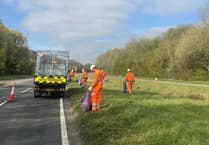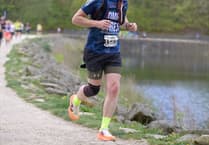CONTROVERSIAL plans by an Evangelical Christian movement to convert an old golf centre into an assembly hall for religious worship and charitable works were refused by East Hampshire District Council planners last week.
The Plymouth Brethren’s proposed change of use for the old Tri Golf Centre, next to Applegarth Farm, in Grayshott’s Headley Road, had triggered more than 60 objections and 30 responses in support of the application.
The Brethren, which currently holds meetings in halls at Camelsdale, Passfield, and Liphook with the main meeting hall at Fernhurst’s Parkway Gospel Hall, submitted the plan because the Fernhurst hall is too small. The Applegarth centre would have become the main assembly hall, with the other centres used for smaller meetings.
Objectors protested that developments are not permitted within the Settlement Gap – the green space dividing Headley and Grayshott and more than 800 people signed a petition in support of ‘preserving the countryside between Grayshott and Headley Down’.
Planning officers had recommended conditional planning permission be granted, but councillors at last Thursday’s planning committee voted by ten to three to refuse consent.
Objecting to the proposal for the old golf driving range, one resident wrote: “A church does not need to be located in the countryside and would be better placed in a town with good public transport links.
“Given the likely number of attendees, the parking area to the front of the proposed development is wholly insufficient.”
Supporting the scheme, residents claimed the development would benefit the Settlement Gap by converting existing buildings that need sprucing up.
“It will be a buffer and prevention to developments that are eroding the ‘local gap’,” one supporter wrote. “This application meets the needs of some of the local community, and the application carries with it a base for an international charity that reaches out to man in time of need.”
Opening the debate, Grayshott ward member Ferris Cowper supported concerns about the plan, but said he had been disappointed by some of the comments received about The Brethren, adding they were “very supportive of the community”. He advised that the applicant was not relevant to the determination of the application.
Mr Cowper said his issues with the application centred on built development and more crucially highway issues. And he proposed a motion that the application should be refused on two grounds - road safety and being an eyesore.
Firstly, because the proposed development, by virtue of the new vehicular access and traffic generation from the use of the building as a place of worship, would have an adverse impact on the local highway network, to the detriment of the safety for highway users.
Secondly, because the proposed extension to the car parking area, by virtue of the expansion of hard surfacing in combination with the parking of vehicles, would result in a “harsh urban feature”.
Mr Cowper told the committee Headley Road was very narrow and when a footpath had been built along Headley Road, the junction at Hammer Lane had had to be totally redesigned to enable drivers to turn in and out. There had also been a fatality on Headley Road in 2014.
He questioned the figures quoted on the number of vehicles that would be accessing the site and considered that it would be a five fold increase.
Committee members also raised concerns about the number of extra cars the application would trigger and the proposed location and size of the car park. They also noted it was a development outside of the Settlement Policy Boundary and in a Local Gap.
Responding, officers said conversions of rural buildings were allowed and therefore the application was acceptable. In addition, places of worship were specifically listed as an example of a community facility. They also advised that the site was sustainable. But councillors voted to reject the application.





Comments
This article has no comments yet. Be the first to leave a comment.